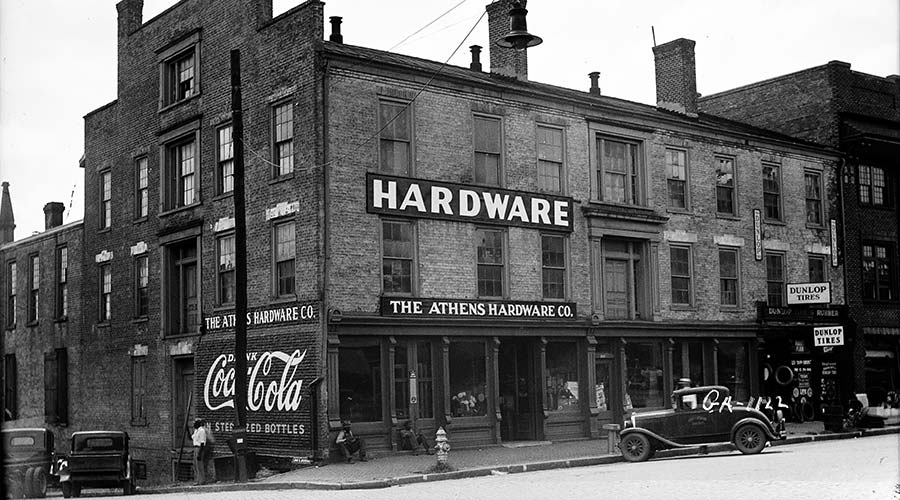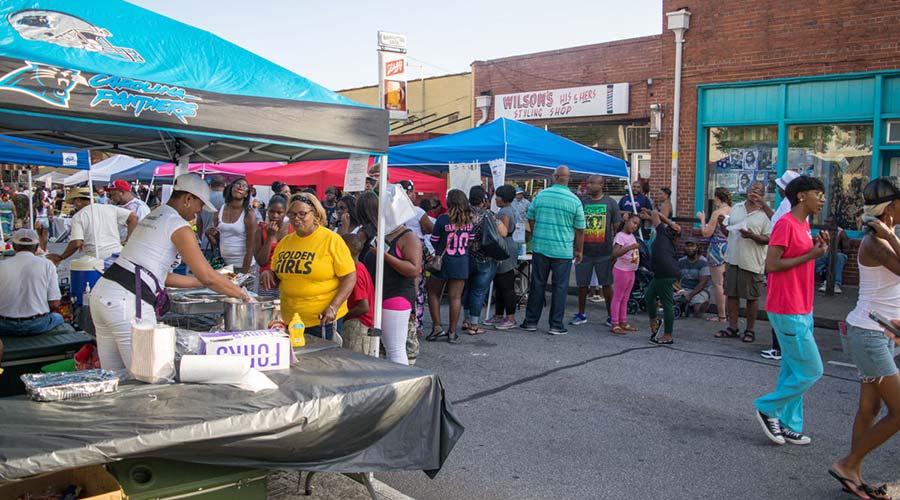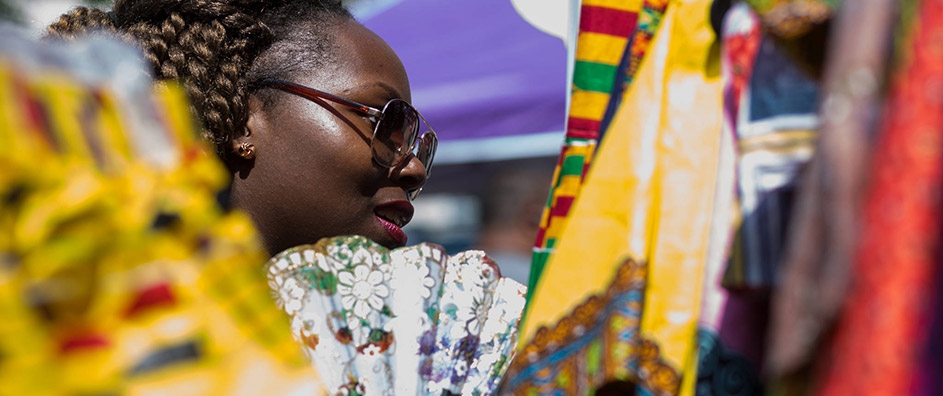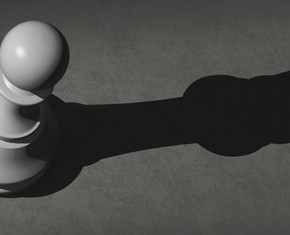The views expressed in our content reflect individual perspectives and do not represent the authoritative views of the Baha'i Faith.
Ponder this one for a moment: when was the last time you got together with a large group of people from a different race than yours?
Doing the right thing at the right time. Knowing the needs and fulfilling them. That’s what the folks who live in and around “The Hot Corner,” on the west side of downtown Athens, Georgia started during the Jim Crow era. Back then African-Americans weren’t allowed to patronize stores in the all-white parts of town, so black people opened their own businesses in the area where Hull and Washington Streets meet. They were so successful that the small business district earned the moniker “The Hot Corner.”

Charlayne Hunter Gault, special correspondent for the PBS News Hour recalled, “The city’s historic African-American business district, known as the Hot Corner, helped foster commerce in a place once steeped in segregation …. Fifty-six years ago, when I was one of [the] first two black students at the University of Georgia, I couldn’t come into Athens and go to a movie theater like this. I couldn’t even take bowling because the bowling alley was here, and it was segregated.”
The corner thrived until the time came when segregation ended, suburbs grew, and, as was happening with many downtown districts, businesses relocated or folded because of the popularity and convenience of shopping malls that sprang up closer to residential neighborhoods. But the locals determined that the history and culture of that area would not die. Homer Wilson, who has been cutting hair in his Wilson’s Styling Salon on the Hot Corner for over 50 years, spearheaded the organization of the Hot Corner Celebration and Soul Food Festival, which draws a wide diversity of folks every year. Athensforeverone.com describes the offerings: “Soul food, Gospel music, Rap, R&B, Jazz, local authors, health fair, dancers, a raffle—it’s a blast!”
The Hot Corner festival provides an opportunity for blacks and whites to come together in a social atmosphere that can bring new awareness and offer them a chance to meet and mingle. It helps break down barriers and emphasize unity, one of the goals of the Baha’i teachings, as well:
The diversity in the human family should be the cause of love and harmony, as it is in music where many different notes blend together in the making of a perfect chord. If you meet those of different race and colour from yourself, do not mistrust them and withdraw yourself into your shell of conventionality, but rather be glad and show them kindness. Think of them as different coloured roses growing in the beautiful garden of humanity, and rejoice to be among them. – Abdu’l-Baha, Paris Talks, p. 53.
As the Hot Corner festival grew each year, interest in the location brought the Corner back to life. Some decry the fact that rather than new owners and businesses catering to the African-American community, it has turned instead into a night spot with trendy bars and restaurants. Worse, they say, is that some of the still existing black-owned businesses were forced out to make way for the gentrification taking place.
But Wilson sees it differently: “Diversity breeds only good things,” he told a local blogger. “While I’d like to see more black shop owners for my community’s sake, I think diversity in general will bring a stronger economy.”

Wilson, who had held on to his property adjacent to the salon, which once flourished as Wilson’s Soul Food, sold it to David Eduardo for his World Famous eatery. During a PBS interview, Eduardo told Charlayne Hunter-Gault who asked, “What drew you to it,” that “The fact that there was a restaurant there before that had a 30-plus year run of success was very encouraging. They had a great reputation and we could only hope to be half as successful as they were.”
Many others had petitioned Wilson for the opportunity, but he said Eduardo was more persistent and Eduardo admitted he’d begged for the opportunity.
Perhaps Wilson said yes because World Famous also promotes diversity. Eduardo told Gault: “We have cuisine from everywhere around the world, our live entertainment. On any given night, you can find hip-hop, comedy, singer-songwriters. We want to be a place for everyone …”
As I read Eduardo’s description, I immediately thought of Baha’i singer/songwriter Matthew Levine’s song, Sushi in the Kremlin, which so delightfully depicts a world where food brings us together and breaks down barriers. He sings:
Turn the coals and put on the chicken—smells so good!
Here’s to our international neighborhood
Soup is on, oh how do we get along so well?
Everyone is colorblind, and it will be so nice when we find…
Sushi in the Kremlin, pizza in Japan
Tabouli in Jamaica, Moussaka in Sudan
If we get to know each other, maybe say a little grace
There’ll be food on every table and a smile on every face.
Between the philosophy of World Famous and the annual festival, The Hot Corner has become a beacon of light and an example of how to bring people together. Let’s hope those who find fault with the change and would prefer the community to return to all African-American will come to understand that we are all one, and black and white can blend beautifully together. May we all heed the advice of Abdu’l-Baha:
Do not allow difference of opinion, or diversity of thought to separate you from your fellow-men, or to be the cause of dispute, hatred and strife in your hearts. Rather, search diligently for the truth and make all men your friends. – ibid.
















Comments
Sign in or create an account
Continue with Googleor